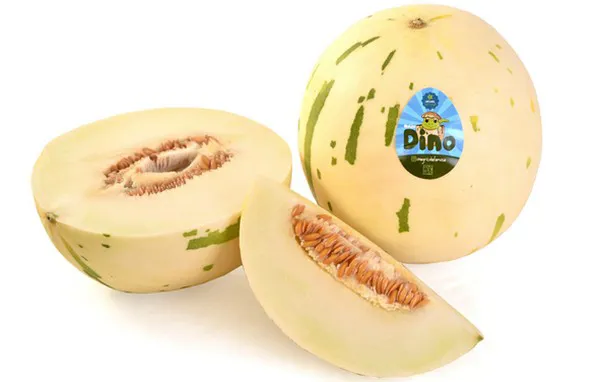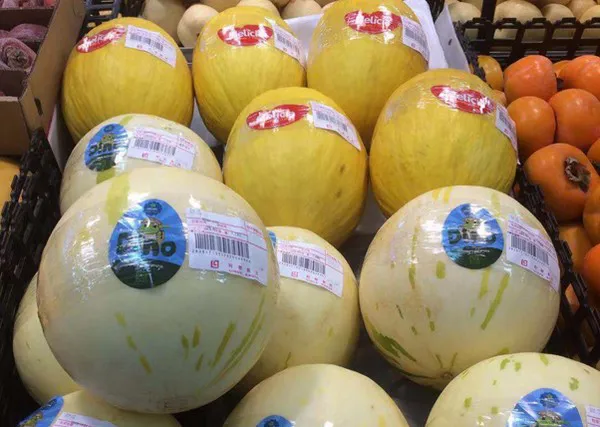Brazilian muskmelons received permission to enter the Chinese market for the first time last year. Many traders were still hesitant, so the import volume was not large. Farmers have already planted the Brazilian muskmelons that are destined for the Chinese market this year. Kevin of RK Growers recently talked about the market potential of Brazilian muskmelons in China.
Last season the delivery speed of Brazilian muskmelons was not as good as expected. Some importers tried the muskmelons for a brief period and then decided to stop importing them. According to Kevin, "Objective analysis shows that the market conditions were not great last year because of the pandemic. Many import fruits performed below expectations. Brazilian muskmelons are considered a high-end market product and so the retail price is rather high. It is understandable that such a product does not meet the expectations when the market itself is weak and consumers are not familiar with this fruit. However, some special varieties such as Dino and Piel de Sapo muskmelons do have great market potential in China."

Cute Dino muskmelons
Kevin explained that the Brazilian muskmelon has great potential to sell well in the Chinese market, but it takes time to cultivate the market and familiarize consumers with this new product. "First, the supply season of Brazilian muskmelons coincides with the off season of domestic muskmelons. Only a small volume of muskmelons from Hainan supply the Chinese market during the off season, but overall market supply is low, which offers opportunities for Brazilian muskmelons. Second, only a small number of countries has permission to export muskmelons to the Chinese market, including Brazil, Myanmar, Kyrgyzstan. Myanmar primarily supplies staple muskmelons. They can not compare to Brazilian muskmelons in terms of product quality or product variety. Other than that, the appearance of Brazilian muskmelons is quite distinct. The fruit flesh is crisp and glutinous in the center. The flavor is sweet and not greasy. The melon rind is sturdy and covered in pleasing patterns. The weight of individual muskmelons can reach as much as 3kg. These muskmelons can satisfy the varied demand of many customers, especially the high-end customers in China."

Exclusive Dino muskmelons
"Brazilian muskmelon farmers have just planted the muskmelons that are destined for the Chinese market. They are expected to publish prices in late August or September. The export trade will commence in late September or October. The export window in Brazil only lasts a few months until late January or early February when heavy rainfall begins. That is when export stops," said Kevin. "We cooperate with production areas that produce the Dino variety. This high-end market variety suits the Chinese market very well, whether in terms of flavor or appearance. Last year we exported Dino and Yellow Honey Dew muskmelons to test the Chinese market. However, transport from Brazil takes a long time. In addition, transport cost and taxes are both high. In the end the price of Brazilian muskmelons is rather high. Even so, market feedback was overwhelmingly positive."

Supermarkets promoted Brazilian Dino muskmelons in 2020
"I think that if we can lower the transport cost of Brazilian muskmelons, then we will be able to better compete with other muskmelons in the Chinese market. And we will also be able to attract more Chinese consumers," said Kevin. "The situation is now as follows. Retailers are eager to try this new product, but wholesale traders are less willing to take the risk and hesitate to import. I think that exporters and importers will need to have the patience to cultivate the Chinese market if they want Chinese consumers to become familiar with Brazilian muskmelons."
For more information:
Kevin Au Yeung - Asian Market Manager
RK Growers Srl / Omnifresh™ Apple
E-mail: Kevin.auyeung@rkg.it
Website: www.rkg.it
Website: www.omnifreshco.com
